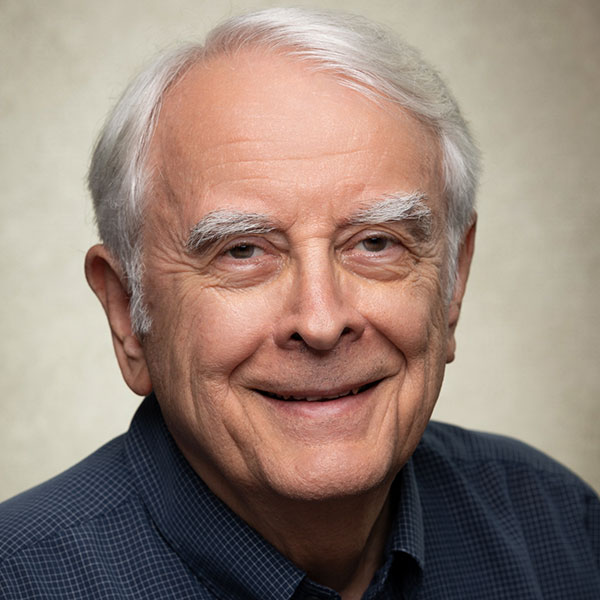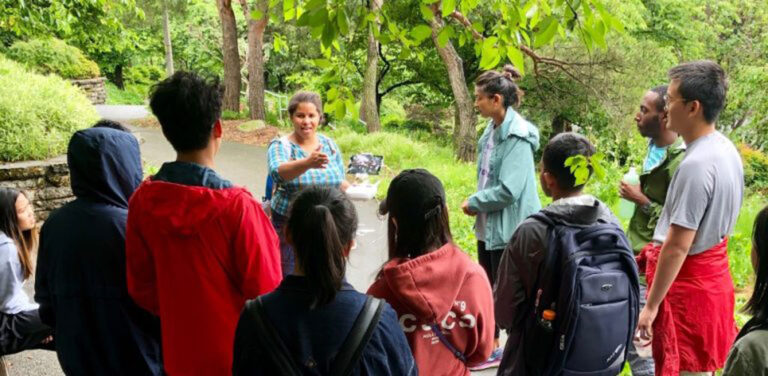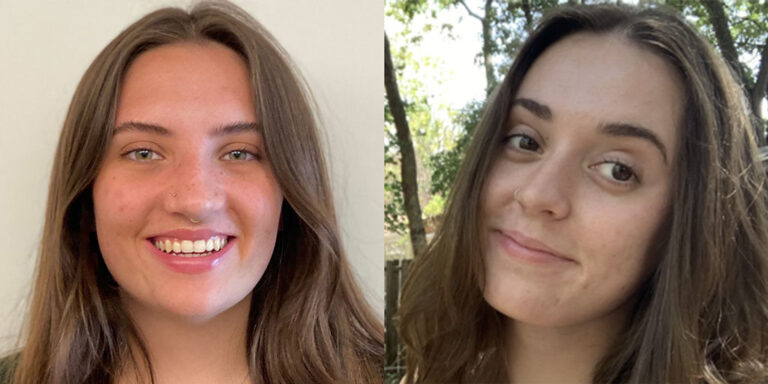AAG Announces 2019 AAG Award Recipients
The American Association of Geographers congratulates the individuals and entities named to receive an AAG Award. The awardees represent outstanding contributions to and accomplishments in the geographic field. Formal recognition of the awardees will occur at the 2019 AAG Annual Meeting in Washington, D.C. during the AAG Awards Luncheon on Sunday, April 7, 2019.
2019 AAG Harm de Blij Award for Excellence in Undergraduate Teaching
This annual award recognizes outstanding achievement in teaching undergraduate Geography including the use of innovative teaching methods. The recipients are instructors for whom undergraduate teaching is a primary responsibility. The award consists of $2,500 in prize money and an additional $500 in travel expenses to attend the AAG Annual Meeting, where the award will be conveyed. This award is generously funded by John Wiley & Sons in memory of their long-standing collaboration with the late Harm de Blij on his seminal Geography textbooks.
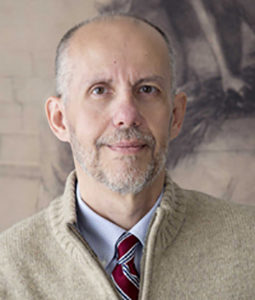 Alex Papadopoulos, DePaul University
Alex Papadopoulos, DePaul University
Dr. Alex Papadopoulos is Professor of Geography at DePaul University. He was recognized with DePaul’s Excellence in Teaching award in 1996 and the Cortelyou-Lowery Award for Teaching, Service and Excellence in 2011. Papadopoulos teaches a variety of undergraduate courses including Earth’s Cultural Landscape, Urban Geography, Geopolitics and Topics in Architecture and Urbanism. His teaching accomplishments include initiating DePaul’s first experiential learning geography class, leading multiple study abroad experiences in Europe and North Africa, and mentoring numerous colleagues in their teaching. Students describe him as an instructor who is knowledgeable, inclusive, and caring. Multiple students stated that Dr. Papadopoulos helped spark their academic interests, with alumni noting that his teaching has resulted in life-long learning for them. Dr. Papadopoulos has established himself as an extraordinary, and extraordinarily committed, teacher at this institution that values teaching above all other academic responsibilities.
2019 AAG E. Willard and Ruby S. Miller Award
This annual award recognizes members of the Association who have made truly outstanding contributions to the geographic field due to their special competence in teaching or research. Funding for the award comes from the estate of Ruby S. Miller. More than one award may be awarded each year. Each award includes $1,000 and a commemorative plaque.
 J. Clark Archer, University of Nebraska Lincoln
J. Clark Archer, University of Nebraska Lincoln
J. Clark Archer, University of Nebraska Lincoln, has led a career characterized by an outstanding record of sustained high-quality scholarship. Over more than four decades, he has made significant contributions to the fields of political geography (specifically the geography of United States politics), cartography, population geography, and demographics. He is a leading expert on the use of maps in political and electoral geography research, and has published many regarded atlases, monographs and more than 50 journal articles and book chapters. Moreover, Archer’s analyses and interpretations of American elections have been instrumental in consolidating a role for electoral geography in the study of American politics. Such work underlines the traditional power of geography to inform problems that straddle multiple disciplines.
2019 Glenda Laws Award
The Glenda Laws Award is administered by the American Association of Geographers and endorsed by members of the Institute of Australian Geographers, the Canadian Association of Geographers, and the Institute of British Geographers. The annual award and honorarium recognize outstanding contributions to geographic research on social issues. This award is named in memory of Glenda Laws—a geographer who brought energy and enthusiasm to her work on issues of social justice and social policy.
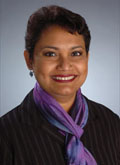
Farhana Sultana, Syracuse University
Farhana Sultana’s work is theoretical and applied, interdisciplinary, rigorous, critical, layered, intriguing, provocative and even uncomfortable at times. Dr. Sultana began her professional career in social justice and over time she has expanded her focus to colonialism, institutional racism, and related concerns. As a geographer from the global South, Dr. Sultana has worked for years to bring non-Eurocentric thinkers into our institutions and has asked that academics “de-colonize their pedagogy.” One of her most recognized bodies of work has forced us to recognize that academic freedom is not globally guaranteed. More recently, Dr. Sultana has brought her skills, knowledge, and talents to the increasingly vocal and visible problems of mental health that have emerged in academia. She has supervised more than forty Ph.D., Master’s, and Honor’s Student throughout her career and mentored many more. Her service to the discipline and profession, universities, international communities, conferences and workshops is impressive, far-reaching, and impossible to summarize. She has been described as a scholar/activist and public intellectual, and also as someone with the courage and bravery to speak out, even when it may be uncomfortable to the status quo. The AAG is proud to award Dr. Farhana Sultana the 2019 AAG Glenda Laws Award.
2019 The AAG Harold M. Rose Award for Anti-Racism Research and Practice
The Rose Award was created to honor Harold M. Rose, who was a pioneer in conducting research on the condition faced by African Americans. The award honors geographers who have a demonstrated record of this type of research and active contributions to society, and is awarded to individuals who have served to advance the discipline through their research, and who have also had an impact on anti-racist practice.

Katherine McKittrick, Queen’s University
Dr. Katherine McKittrick of Queen’s University has not only contributed to the study of race and gender through her prodigious scholarly output, but she has been a consummate mentor to various students and faculty of color. She has also been one of the most high-profile advocates for the burgeoning field of Black Geographies. Through her work on numerous editorial boards, and as an associate editor of Antipode, she has worked to promote faculty and students of color and mentored junior scholars in writing and publishing in the discipline.
Her efforts were recognized when she was awarded the inaugural Ban Righ Mentorship Award at Queen’s University. Dr. McKittrick has also been instrumental in seeing scholarship that engages with the perspectives of underrepresented persons made more visible in the discipline and in bridging the views of Black Studies, Women’s Studies, and Geography.
The 2019 AAG Marcus Fund for Physical Geography Award
The objective of The Mel Marcus Fund for Physical Geography is to carry on the tradition of excellence and humanity in field work espoused by Dr. Melvin G. Marcus. Grants from the Mel Marcus Fund for Physical Geography will foster personally formative participation by students collaborating with faculty in field-based physical geography research in challenging outdoor environments.
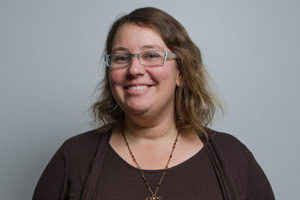 Elizabeth Watson, Drexel University
Elizabeth Watson, Drexel University
Dr. Elizabeth Watson, Assistant Professor in the Department of Biodiversity, Earth & Environmental Sciences at Drexel University. She will take a PhD student and an undergraduate student to Bahía San Quintín, Baja California, México. There they will be conducting seagrass mapping in an estuary using a combination of remote sensing and field-based methods. This pristine and highly productive estuary is a model system for study, due to its long-time stewardship by local NGOs. Through a peer-mentoring approach, the undergraduate will be exposed to field methods for the first time, while the PhD student will gain leadership skills. The selected undergraduate, a first-generation college student, has been working in Dr. Watson’s laboratory and will be able to experience a different type of research environment while interacting with local scientists and students in Mexico. The PhD student will be making important connections with local scientists and NGOs while making progress on his dissertation research. The Marcus award funds will be used to cover the travel expenses for the two students and will support the award’s goal of fostering personally formative participation by students collaborating with faculty in field-based physical geography research.
2019 Meredith F. Burrill Award
The AAG Meredith F. Burrill Award honors work of exceptional merit and quality that lies at or near the intersection of basic research in geography on the one hand, and practical applications or policy implications on the other.The purpose of the award is to stimulate and reward talented individuals and groups whose accomplishments parallel the intellectual traditions Meredith F. Burrill pursued as a geographer, especially those concerned with fundamental geographical concepts and their practical applications, especially as relevant to local, national, and international policy arenas. The funds that underwrite the award come from a bequest by Burrill, a gift from his wife Betty, and donations in his memory from colleagues and friends. The award, consists of a certificate and cash honorarium, at the Association’s Annual Meeting.
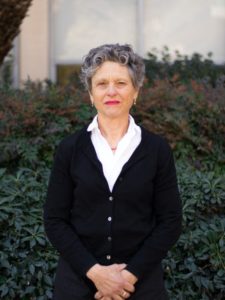 Stephanie Pincetl, University of California Los Angeles
Stephanie Pincetl, University of California Los Angeles
Stephanie Pincetl, University of California Los Angeles, has been an intellectual leader in the field of urban sustainability, known particularly for her extensive research on urban metabolism and effective resource management governance structures. Her academic success is unquestionable, with one monograph and some 90 peer-reviewed scholarly works in the leading journals of her field. More pertinent to the Burrill Award, however, are the myriad ways that she has coupled that academic success with real world problem-solving, using her large-scale datasets to analyze and answer critical policy questions regarding sustainability. This work has implications not only for the case of Los Angeles, where her California Center for Sustainable Communities is based, but is applicable more broadly in megacities around the globe.
2019 Wilbanks Award for Transformational Research in Geography
The AAG Wilbanks Award for Transformational Research in Geography will honor researchers from the public, private, or academic sectors who have made transformative contributions to the fields of Geography or GIScience. Provided there is sufficient availability of funds, the Wilbanks Award will consist of a cash prize of $2,000 and include a memento with the name of the Award and the recipient.
 Susan Cutter, University of South Carolina.
Susan Cutter, University of South Carolina.
Dr. Cutter, Carolina Distinguished Professor of Geography and Director of the Hazards and Vulnerability Research Institute, has made transformative, far-reaching research contributions to geography and the broader interdisciplinary research communities that focus on hazards and disasters. Her work led to development of the Social Vulnerability Index, the first nationwide empirical representation of social vulnerability. The Index is used in FEMA’s National Risk Assessment toolkit and by many other nations. She also pioneered the Baseline Resilience Indicators for Communities, a county-level assessment of disaster resilience; the Hazards of Place model of vulnerability, which analyzes the contributions of physical and social vulnerability to overall place vulnerability; and the Disaster Resilience of Place model, which identify place-based differences and measures progress towards resilient goals and outcomes.
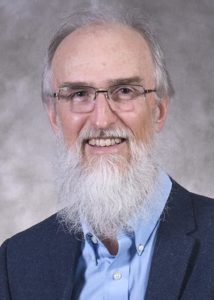 Alan MacEachren, the Pennsylvania State University
Alan MacEachren, the Pennsylvania State University
Dr. MacEachren, Professor of Geography and Director of the Hazards and Vulnerability Research Institute and Director of the GeoVISTA Center, has made transformative, far-reaching research contributions to geography, GIScience, and the broader interdisciplinary research communities that focus on information visualization and visual analytics. In his seminal 1995 book, How Maps Work: Representation, Visualization and Design, he developed a cognitive-semiotic theoretical perspective for dynamic representation that fostered the next generation of cartography, conceptualizing map making and reading as a process of knowledge construction itself. Dr. MacEachren’s recent work on geovisual analytics champions thinking about how humans can collaborate with computers to make sense of information needed to solve highly complex problems. His research advances our fundamental understandings in geography, computer science and related fields and has been employed in a broad range of domains, such as public health, crisis management, and environmental science.
2019 AAG Award for MA/MS Program Excellence
This annual award and cash prize honors Geography departments and Geography programs within blended departments that have significantly enhanced the prominence and reputation of Geography as a discipline and demonstrated the characteristics of a strong and engaged academic unit. The award honors non-PhD granting Geography programs at both the baccalaureate and master levels.
 Western Michigan University has a clearly outlined commitment to shared governance and cultivates robust engagement with the East Lakes Division of the AAG. An annual curricular retreat regularly sets Departmental goals, and graduate students have a voice through formal regular meetings with the Chair and Graduate Director, and informal monthly lunches with Departmental faculty.
Western Michigan University has a clearly outlined commitment to shared governance and cultivates robust engagement with the East Lakes Division of the AAG. An annual curricular retreat regularly sets Departmental goals, and graduate students have a voice through formal regular meetings with the Chair and Graduate Director, and informal monthly lunches with Departmental faculty.
Western Michigan’s use of internal Departmental funding to prioritize graduate student participation in conferences, results in annually funding around 16 masters students, approximately half of its incoming masters cohort, to attend the AAG meeting. Not only are these graduate students well-resourced, they become successful. The Department of Geography offers a teaching assistantship training program for its graduate students and has seen recognition of this with on-campus awards for Graduate Teaching Excellence. Its graduate students move on to Ph.D. programs, successfully pursue internships, or move into careers with employers in the public sector such as the UN’s refugee agency (UNHCR) and various state and federal agencies, and the private sector.
One of the most impressive initiatives undertaken by Western Michigan University’s Department of Geography has been systematic outreach to K-12 and area community colleges. In a letter, Diana Casey of Muskegon Community College, an institution around 100 miles away from WMU, stated “The faculty at WMU have always maintained an open door for my undergraduate students to learn about opportunities so they can further their collegiate studies,” and notes that not only will the geographers at Western Michigan host her and her students, but these faculty also regularly travel to Muskegon Community College to meet faculty and students.
Finally, the Department offers a robust research profile, generating around $1.8m in external grants over the last five years, its faculty publishing “133 peer-reviewed articles, 7 books, and 20 book chapters” over the same period, in addition to presenting 165 papers at academic conferences and a further 97 invited lectures.
Honorable Mention:
California State University – Long Beach, has exhibited a very strong and successful commitment to enhancing faculty research in a teaching-intensive institution, strategic outreach to Latinx students to further diversify its already multicultural student body, and curricular development both in terms of specialized UAV courses and robust general education offerings. The integration of federally-supported Coverdell graduate student fellowships for returning Peace Corps volunteers was noted by the committee as an innovative recruitment strategy.
2019 Dissertation Research Grant recipients ($1,000/each)
Sophia Borgias, University of Arizona
Michael Desjardins, University of North Carolina at Charlotte
Eric Goldfishcher, University of Minnesota
Robert Hobbins, Arizona State University
Megan Mills-Novoa, University of Arizona
2019 Research Grant recipients ($500/each):
Lynn Resler, Virginia Tech University
Sean Kennedy, UCLA
Jessie Speer, Queen Mary University of London
Marylynn Steckley, Carleton University
Kathryn Hannum, Kent State University
Lisa Tranel, Illinois State University
